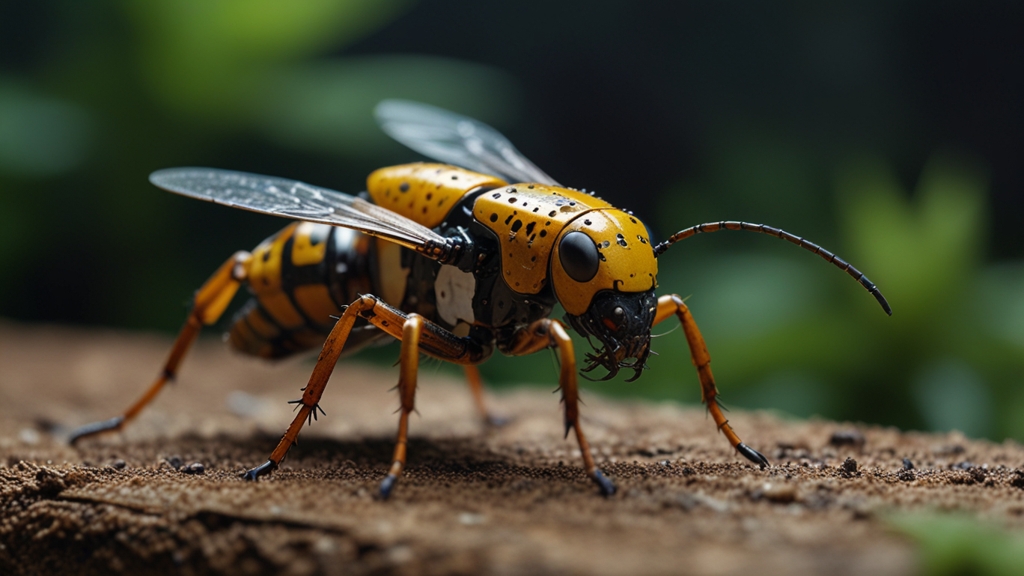Vanishing Legends: The Mythical Creatures Facing Extinction
Humans have always been fascinated by mythical creatures. From the majestic dragons of ancient China to the elusive will-o'-the-wisps of European folklore, these stories have sparked the imagination of countless generations. However, as folklore and culture evolve, some of these legendary beings are at risk of fading into obscurity, facing what we might call 'extinction' in the mythological sense.
The Dragons' Last Roar
Dragons, ancient serpentine creatures that have appeared in myriad cultures, are perhaps the most iconic of all mythical beasts. In medieval Europe, dragons were often depicted as fearsome creatures to be slain by heroic knights. In contrast, Chinese dragons are revered as symbols of power and good fortune.
"The dragons are the spirit of the earth and sky, embodying the elemental forces of nature, both nurturing and destructive." - Dr. Lina Wang, Folklorist
With modern advancements and the push towards scientific explanations, the once-feared and revered dragons have become relics of a pre-scientific world. Educational curriculums rarely, if ever, delve into these rich mythologies, causing newer generations to be less familiar with these fascinating creatures.
Elusive Will-o'-the-Wisps
Another mythical being on the brink of 'extinction' is the will-o'-the-wisp. These ghostly lights are said to appear in marshes and swamps, leading travelers astray. Known by many other names, including "Ignis Fatuus" and "Fairy Lights," these flickering orbs of light have been a staple of European folklore for centuries.
"In modern times, the scientific explanation for will-o'-the-wisp phenomena—often attributed to the combustion of gases like methane—has overshadowed the mystical stories that once defined them." - Dr. Amelia White, Cultural Historian
As more people migrate to urban areas, leaving behind rural landscapes where such phenomena are observed, the sightings and subsequent stories of will-o'-the-wisps diminish. This trend contributes to their slow but steady fading from collective memory.
The Fading Echoes of Greek Mythology
Greek mythology, with its pantheon of gods, heroes, and creatures like the Minotaur and Medusa, has long captivated scholars and enthusiasts alike. While the fundamental tales remain, the lesser-known creatures and nuances are gradually being forgotten. It is a silent extinction, eroding the rich tapestry of mythological diversity over generations.
Educational focus tends to highlight the prominent gods and heroes, leaving behind a wealth of lesser-known myths and creatures that have equally fascinating stories. These mythical beings are not merely tales but are reflections of the human condition, societal norms, and natural phenomena interpreted through the lens of ancient cultures.
The Role of Technology
Advancements in technology and the internet age have further accelerated the 'extinction' of these mythical creatures. While digital media has spawned a renaissance of mythological themes in games, movies, and literature, it also often homogenizes and oversimplifies them, stripping away the rich, diverse storytelling of traditional myths.
"In our digital age, we have access to vast amounts of information, but the depth of mythological knowledge is often lost in the sea of trivial content." - Dr. Leonard Strauss, Mythologist
While there are efforts to revive interest through modern retellings, these efforts are often niche and not accessible to the broader public. Social media platforms focus on trending topics, leaving little room for in-depth exploration of ancient myths.
Preserving Our Mythical Heritage
To prevent these mythical creatures from vanishing completely, there is a growing need to preserve and promote these ancient stories. Educators and storytellers must strive to incorporate these myths into modern narratives, making them relevant and engaging for younger audiences. Moreover, cultural heritage programs and folklore studies can be pivotal in safeguarding these myths for future generations.
Ultimately, mythical creatures are more than mere stories; they are an intrinsic part of our cultural heritage, reflecting the hopes, fears, and creativity of our ancestors. By acknowledging their importance and taking steps to preserve them, we not only honor the past but also enrich our cultural landscape for the future.




